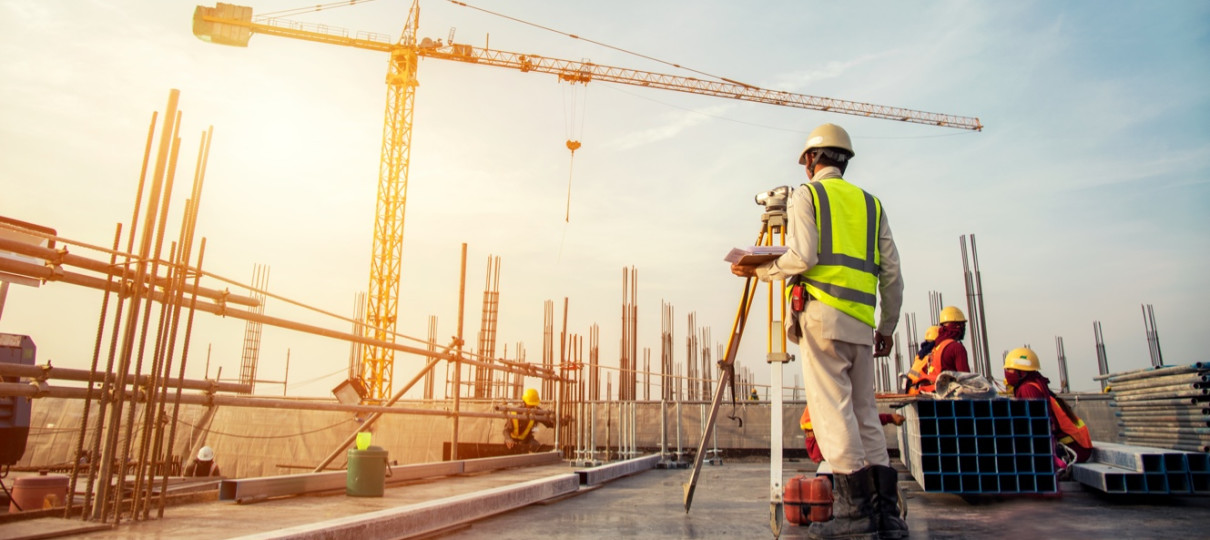Running a business involves a whole lot more than managing day-to-day affairs. This is particularly constant in the construction industry, where workers operate heavy machinery and handle sharp objects. The extent of work done is quite risky as it takes a lot of back-breaking tasks. As a result, employers must make allowances for insurance coverage against property damages, injuries, and legal expenses.
Thankfully, there is a wide range of insurance options to choose from. Here are five types of construction insurance to help protect your business.
Builder’s risk insurance
The builder’s risk insurance is for buildings and other structures while they are still under construction. This insurance policy is beneficial for emergency events such as vandalism, fire, and extreme weather conditions. Its policies cover the following types of property:
- Building materials
- Foundations
- Lawns and trees installed by the builder
This type of insurance is capable of covering only certain kinds of damages. It does not include employee theft, earthquakes, and floods. It lasts for the period of the construction project so that extra costs are not added.
Builder’s risk insurance is recommended for any business trying to undergo construction or remodeling in the future. Its top-quality feature is that it offers the advantage of being bundled into the general liability coverage.
Commercial & contractor general liability insurance
Commercial and contractor general liability insurance is used to protect businesses that contract construction work. This type of insurance provides liability protection to businesses if there is bodily harm or property damage while construction is ongoing.
This insurance protection policy is the most sought after in the construction industry. Akin to filing preliminary notices to protect your revenue in case of payment issues, it protects your business from various liabilities, including injury claims and subsequent medical expenses.
Insurance providers offer a different version of this policy to meet contractors’ and construction projects' specific needs. In contrast to builder's risk insurance, this insurance covers many types of damages, such as:
- Faulty workmanship
- Job-related injury
- Advertising injury/defamation
Contractors are mostly required to possess general liability insurance based on the law of the state they work in or the work on contracts that require it. It is a good starting base for business owners who might not know what specific policy they need to protect their projects. It should be considered necessary for companies that want to specialize in designing buildings, general residential contractors, and developers.
Unfortunately, this insurance policy does not cover repair costs for faulty work. Still, it can cover the damage that results from it, depending on the policy contract from your insurance provider.
Inland marine insurance
The history of this insurance goes back to when goods were first transported by ship and needed protection. It has now evolved to cover a contractor's equipment, installation floaters, and rigger’s liability.
The inland marine policy covers your construction property when it is transported from your office to other locations. The insurance policy is not limited to covering only your property on the worksite, unlike other policies. For example, it will cover any stolen or lost equipment before it gets to the construction site. It covers different types of property, such as:
- Contractor's tools, equipment, clothing, and supplies (hammers, drills, generators, electric saws, wood, and drywall)
- Mobile equipment (excavators, forklifts, loaders, and cranes)
- Leased or borrowed equipment (leased tools or mobile equipment like electric generators and forklifts)
- Computer equipment and data (laptops, tablets, and private project data)
The inland marine policy can also be included in the builder's risk insurance policy for under-construction buildings. The policies attached to this insurance coverage cover items at the replacement cost and fair market value. It can also cover other expenses like those for debris removal and costs caused by delays in machinery replacement.
Commercial auto insurance
Commercial auto insurance involves providing auto insurance to vehicles used by businesses. Many contractors drive large trucks and handle various forms of heavy equipment. Commercial auto insurance helps policyholders out of needing to pay expensive vehicle repair fees and takes them out of lawsuits or medical bills arising from automobile or other vehicular accidents.
It is recommended that all businesses have commercial auto insurance even if they have only a few vehicles titled to them. This insurance policy can be used to insure cars, trucks, trailers, and dump trucks if an accident or damage occurs. There are several coverage options for the commercial auto insurance policy, such as:
- Liability coverage: This policy protects the company and employees from expenses.
- Physical damage coverage: This covers damage to company vehicles after a covered collision.
- Medical payments coverage: This helps cover injury-related expenses such as medical bills, hospital bills, ambulance costs, and funeral expenses.
- Uninsured motorist coverage: This covers damages caused by uninsured drivers. This also includes the damage you cause to others.
Most personal auto insurance policies will exclude accidents caused by your business vehicle from coverage. Your personal and professional commercial policies should be kept separate.
Workers' compensation insurance
This type of accident insurance is used to cover costs when an employee incurs an injury while working. Construction work carries many risks, and it is wise to have a policy that covers payments for any compensation. Options in this insurance policy include the following:
- Compensations for injuries while on the job: This includes falls, trips, and any other similar injuries.
- Injuries caused by transport: This insurance policy also covers transportation accidents in the course of work.
- Provision of additional resources in the workplace
Every contractor must possess a worker’s compensation policy in certain states, even if they have few employees. It is also essential for covering lawsuit costs if an employee sues the business to court, and can protect assets when they are damaged. This policy varies from state to state, and it is vital to know your state's law on this to have the right policy.
Learn more about workers' compensation insurance here.
Rounding up
It is recommended that you purchase all insurance policies your business needs, especially general liability insurance, to minimize risks. This will save you the stress of spending a lot in case your business is sued, or one of your employees gets injured while operating machines. A well-structured insurance policy will prove extremely useful to you and your business. Get one today.
Aki Merced is the Content Manager at Handle.com, where they build software that helps contractors, subcontractors, and material suppliers with late payments. Handle.com also provides funding for construction businesses in the form of invoice factoring, material supply trade credit, and mechanics lien purchasing.
The information and content provided herein is for educational purposes only, and should not be considered legal, tax, investment, or financial advice, recommendation, or endorsement. Breeze does not guarantee the accuracy, completeness, reliability or usefulness of any testimonials, opinions, advice, product or service offers, or other information provided here by third parties. Individuals are encouraged to seek advice from their own tax or legal counsel.







